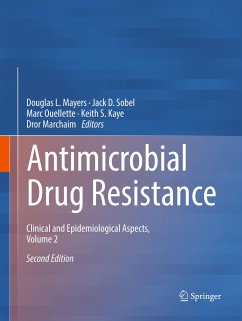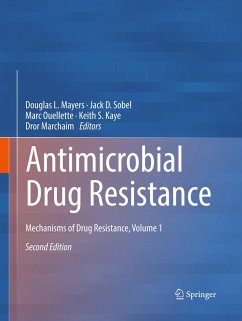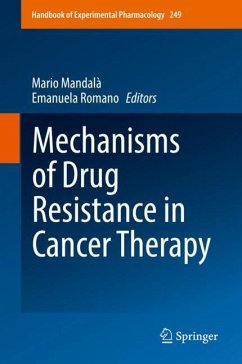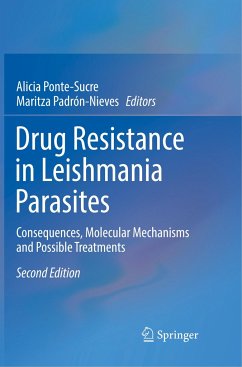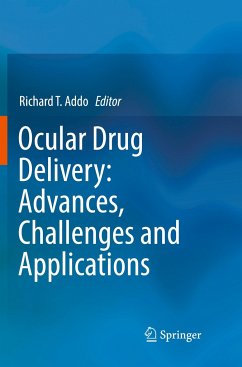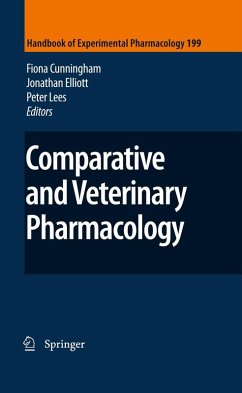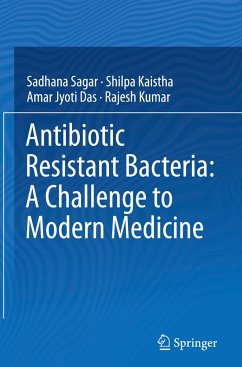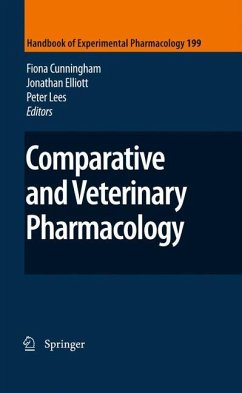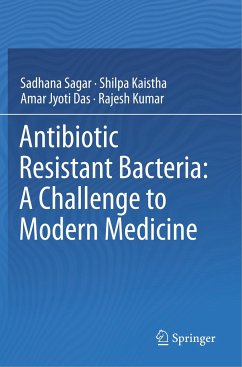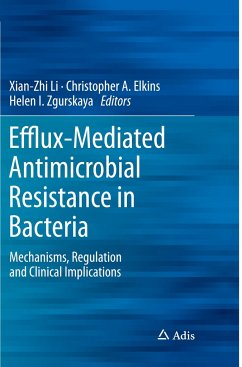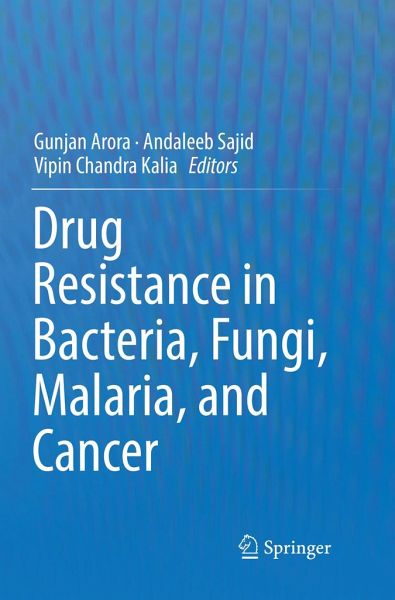
Drug Resistance in Bacteria, Fungi, Malaria, and Cancer
Versandkostenfrei!
Versandfertig in 6-10 Tagen
113,99 €
inkl. MwSt.

PAYBACK Punkte
57 °P sammeln!
This book is a compilation of past and recent knowledge in the field of emerging drug resistance. The book covers major aspects of drug resistance in bacteria, fungi, malaria, and cancer. Human survival on earth is constantly threatened by disease and syndrome. From the early days, the aim of research in medicine was to find therapeutic agents that can improve the quality of human life. Although humans are dependent on natural compounds from early days their dependence of drugs increased excessively in last century. The advances in chemistry and biology have helped researchers to identify the ...
This book is a compilation of past and recent knowledge in the field of emerging drug resistance. The book covers major aspects of drug resistance in bacteria, fungi, malaria, and cancer. Human survival on earth is constantly threatened by disease and syndrome. From the early days, the aim of research in medicine was to find therapeutic agents that can improve the quality of human life. Although humans are dependent on natural compounds from early days their dependence of drugs increased excessively in last century. The advances in chemistry and biology have helped researchers to identify the drugs that have improved treatment of many diseases. The primary factor for treatment of these diseases is dependent on the efficacy of drugs available. The development of resistance to these drugs is one of the major hindrances. Although there are number of books available on this topic, "drug resistance" biology across kingdoms has never been discussed in a coherent way.



